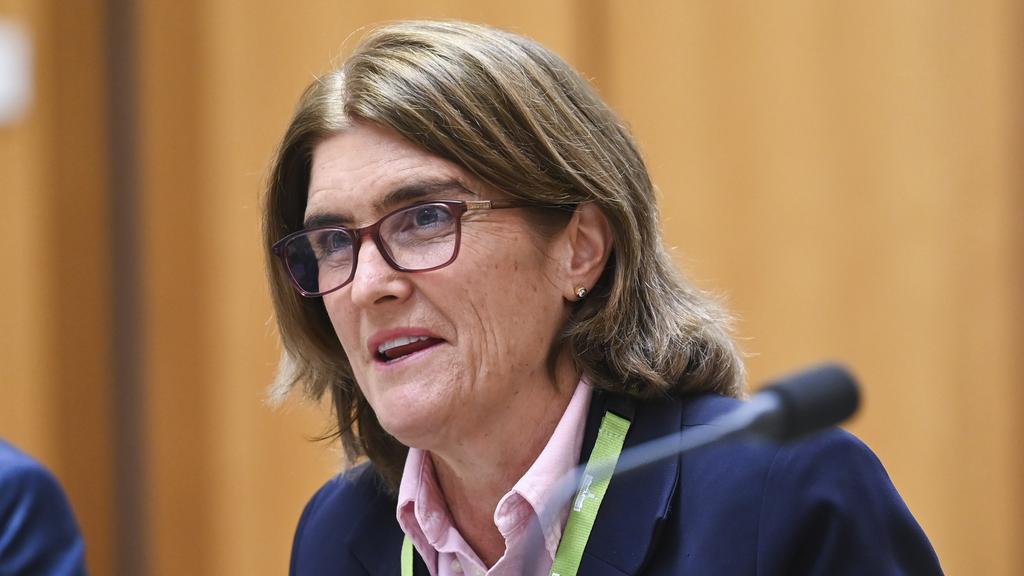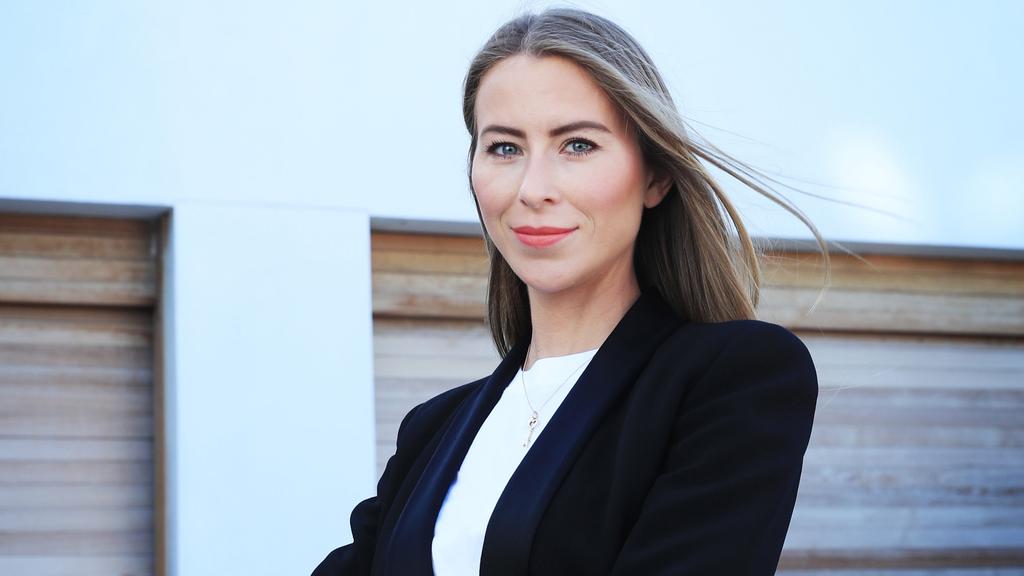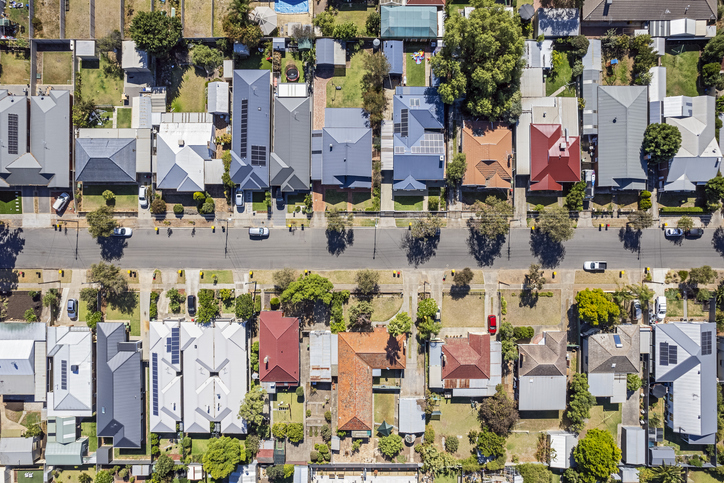Where to now? What the RBA governor’s shock warning means for interest rates
Ms Bullock said borrowers struggling with repayments in the current inflationary environment may have to reassess home ownership, stating 5% of owner-occupiers on variable-rate loans are in a “particularly challenging situation”.
The comments came off the back of the Australian Bureau of Statistics latest quarterly figures which showed gross domestic product (GDP) increased by just 0.2% in the June quarter and GDP per capita declined by 0.4%, the sixth consecutive negative quarterly result.
However, Bullock said the potential increase in borrowers unable to keep up was “not large enough to pose a material risk to the stability of the financial system”.

RBA governor Michelle Bullock said some home owners may need to sell. Picture: Getty
Prop Track senior economist Eleanor Creagh told Mortgage Choice the RBA’s forward guidance communication strategy was key in shaping the public’s market expectations and nudge up spending in the meantime.
“The RBA can influence the economic behaviour of households, businesses and investors and strengthen the transition of monetary policy,” she said. “If the RBA can indicate that it plans to keep interest rates low, consumers and businesses might be more inclined to borrow and invest, boosting economic activity.”
Real Estate Institute of Australia president Leanne Pilkington said the total number of home loans for owner occupiers increased in all states over the June quarter, putting more people at risk of mortgage stress.
Housing affordability in Australia has declined to its lowest since the REIA began monitoring prices in 1996, Ms Pilkington said, with the average repayment now at 48.1% of the median family income.
“The high and sustained interest rates to tackle are having an increasingly negative impact on mortgage holders,” Ms Pilkington told Mortgage Choice. “We have seen savings levels drop to pre-Covid levels, spending on discretionary items is plummeting and the numbers of mortgage holders experiencing difficulties in meeting payments is rising, prompting the RBA governor's comments last week regarding selling.”
She said excluding the COVID-19 pandemic period, the economy is growing at its slowest rate since the early 1990s, but that even small rate cuts could bring plenty of relief to home-owners.
"For each drop in interest rates of 0.25%, housing affordability would improve by 0.85 percentage points,” Ms Pilkington said. “If, as the financial markets are expecting, we have two reductions of 0.25 % by early next year, affordability would come back to March 2024 levels.”

PropTrack economist Eleanor Creagh said the RBA's commentary can influence the economy. Picture: REA Group.
EYES ON INTEREST RATES
Despite financial markets and some major banks – including Australia’s largest lender Commonwealth Bank of Australia – predicting downward movement on rates before the end of the year, Ms Bullock said next year was a more feasible target for a much hoped-for cut.
“I understand that the board’s message on interest rates is not what many borrowers want to hear,” she said. “Those with mortgages are feeling the squeeze on their cash flows not just from high inflation, but also from the increase in interest rates that has occurred in response to it.”
Mortgage holders will need to wait until next year for an interest rate cut, Ms Bullock said. Picture: Getty
POLITICAL FALL-OUT
Deputy leader of the opposition MP Sussan Ley clapped back at Ms Bullock’s comments speaking on Channel Seven’s Sunrise last Friday, pointing the finger at the RBA and noting lowering interest rates in the UK, Canada, New Zealand and even the US.
“What is different? Why is this not happening here?” she said. “Taking responsibility is so important right now for the Australians that we know are really anxious.
“It is important that we have an economic plan, and that’s not present.”
Labor MP and minister for education Jason Clare also weighed in on the show, suggesting the blunt warning was “easy” for Ms Bullock to say.
“I don’t want anyone to have to sell their home,” he said. “It’s easy to say, look, people might have to sell their home, but it’s not if it’s you, not if it’s your life savings, not if it’s your life work to save for a deposit and buy a home.”
With May looking increasingly likely for the next federal election, Treasurer Jim Chalmers has tried to quell criticism of Labor’s role in the persistently sluggish environment.
The treasurer smoothed out concerns of further bad blood between the government and the RBA, at a press conference in Canberra on Tuesday, reaffirming his focus on working closely with Ms Bullock.
“We are making progress,” he said. “I was making a factual point this time last week. It’s a fact born out in the national accounts that higher interest rates are slowing the economy considerably, and I’ve been making a similar point for months.”

Former treasurer Wayne Swan's response to the RBA was criticised by treasurer Jim Chalmers. Picture: Getty
Mr Chalmers instead pivoted criticism onto ex-treasurer and one-time deputy prime minister, Wayne Swan, accusing him of second-guessing the RBA.
Mr Swan – who held Mr Chalmers’ role during the Gillard and Rudd governments – this week said the RBA was "putting economic dogma over rational decision making”.
“I’ve got a lot of respect for governor Bullock,” Mr Chalmers said in response. “Our objectives are actually aligned to get to the top of this inflation challenge and we need to do that without ignoring the risks to growth.”
Mr Chalmers continued to stoke the fire, however, also saying it was “self-evident” and “not especially controversial” to blame interest rates for the slow economic growth in Australia.


